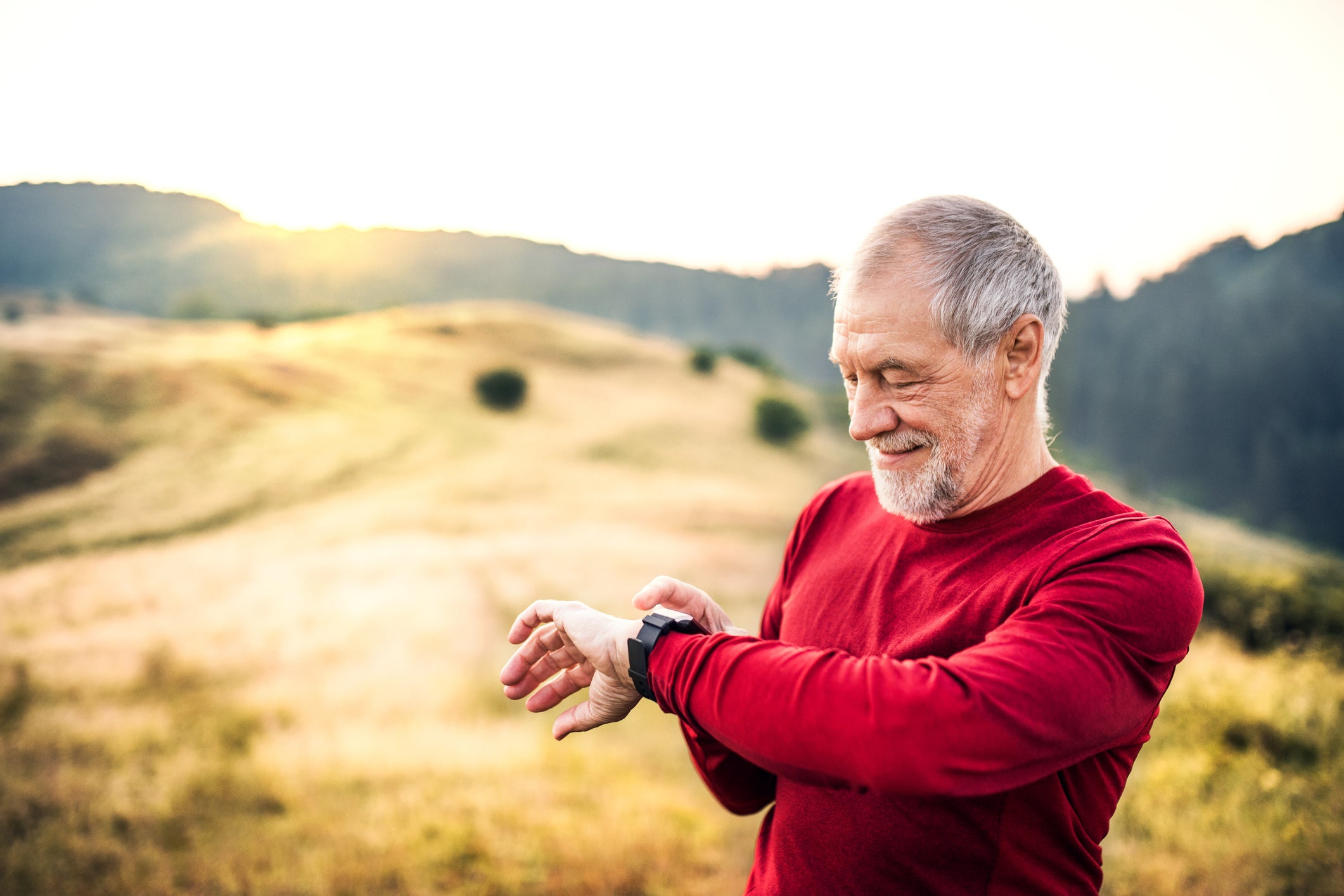How To Build Healthier Habits

An old male happy sportsperson standing and resting after the run.
First: Read the background on the psychology of how habits are formed and what it takes to create (or break) “the habit loop” of trigger, action, reward, repeat. We also laid out the steps to building healthy habits:
- Take stock of your habits and what you want to change — examine the rewards and internal emotions associated with your habits
- Take action and create a plan for working on one small change at a time
- Cement new habits by building on your existing habitual actions and creating rewards that feed those existing habit loops
- Reward yourself along the way for achieving micro-goals and targets
- Adjust your plan of action if you misjudged the reward for a particular habit or need to change your goals — repeat until it sticks!
We’ll now lay out these steps in a particular area that athletes commonly want to build better habits in: mental skills, nutrition, recovery and sleep, and time management. Here’s how to take these steps over several weeks—doing one step per week every day. Work on just one area of focus at a time.
Here, mental endurance coach Vanessa Foerster lays out the steps to work on mental skills.
Take Stock: Mental and emotional skills can be built like any other skills. Start by being honest with yourself and write down (with pen and paper!) every day your answers to these questions:
- On a daily basis, what are your three most common feelings?
- Why do you think you have these feelings?
Be honest with yourself. Allow yourself freedom to write without editing or judgement. The idea here is to gain a greater sense of awareness of where you are now as it relates to where you want to go.
Then think about: What would you like those top three feelings to be? Why?
Take Action: Once you decide what emotional and mental skills you want to build, it’s important to build a roadmap. First and foremost, make a conscious decision that the effort required to build your mental and emotional skills is worth it. Think about the decision as your agreement with yourself.
Ask yourself: “As a person who feels ________ (whatever emotion it is you want to feel more of—for example, confident or less anxious), what would I do? How would I show up?”
Do this for all three of the feelings you want to have and mental skills you want to build. What do people who have those feelings do? What does that look like to you? These answers are your habits and behaviors you want to work on. Make sure to start small. For example, decrease the amount of time you scroll on social media before you cut it out entirely.
Cement Habits: Equally as important is what you believe about yourself. Your habits are built into your identity. If you want to be less negative, then you have to stop telling yourself you’re a negative person. Reinforce your own beliefs about yourself. Each small win (and the celebration that follows!) is more evidence for the type of person you want to be.
- What do you currently believe about yourself as it relates to the habits you want to create?
- Are you willing to challenge that belief in order to become the person you want to be?
Reward Yourself: When you follow through on your plan and actions, celebrate your small wins. Celebrating successes literally wires new neural pathways in your brain and helps you acknowledge the work you’ve already done. It hits an internal success button which sends a dopamine rush into your system.
You can reward yourself any way that makes sense to you, but dancing with my dog is I how I celebrate — the physical action literally creates a bigger dopamine hit.
Adjust, Repeat: Building mental endurance is just like building physical endurance. It takes practice over time. Keep showing up, celebrate your wins, don’t dwell on the losses, and remember that every day is a new opportunity to try again.